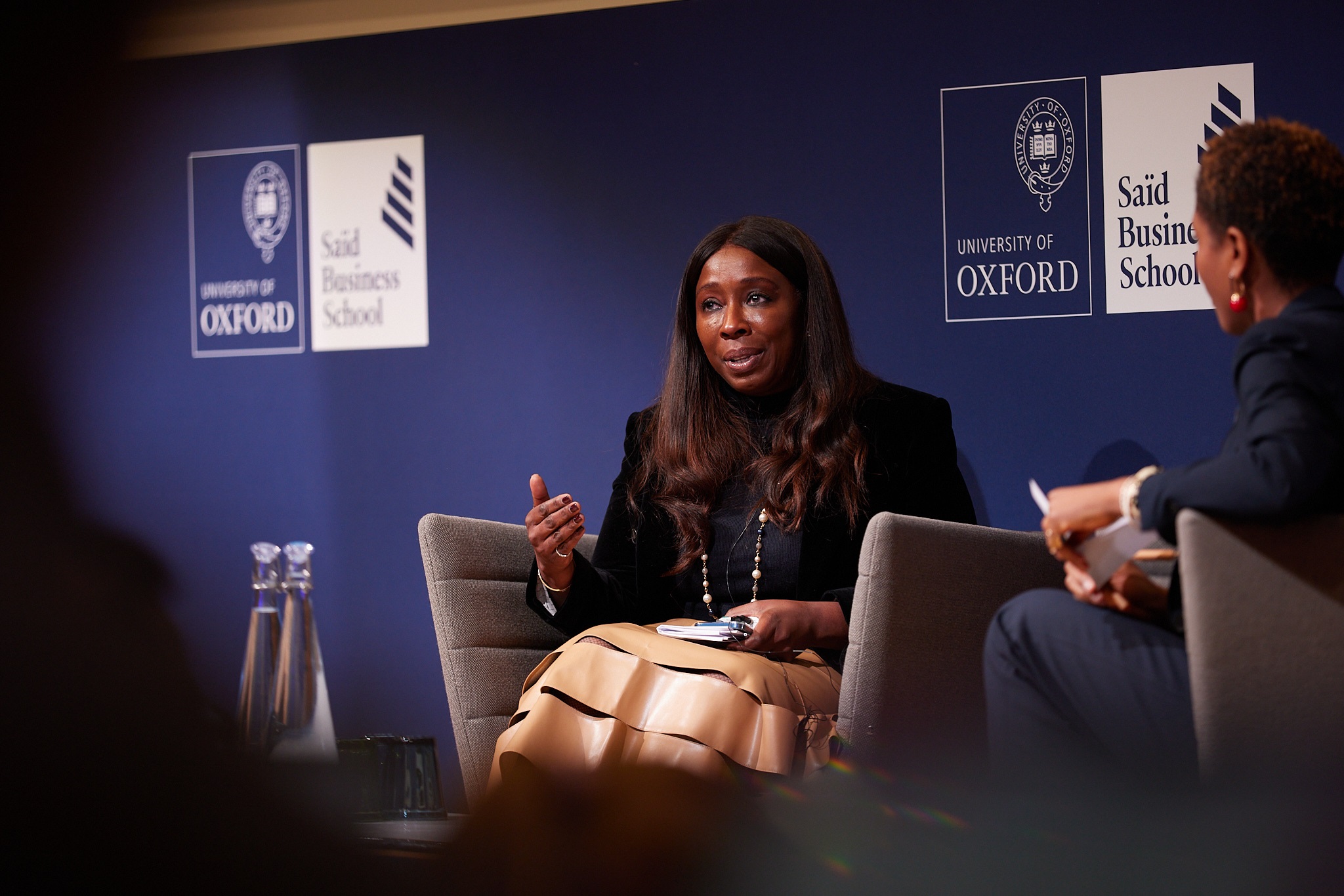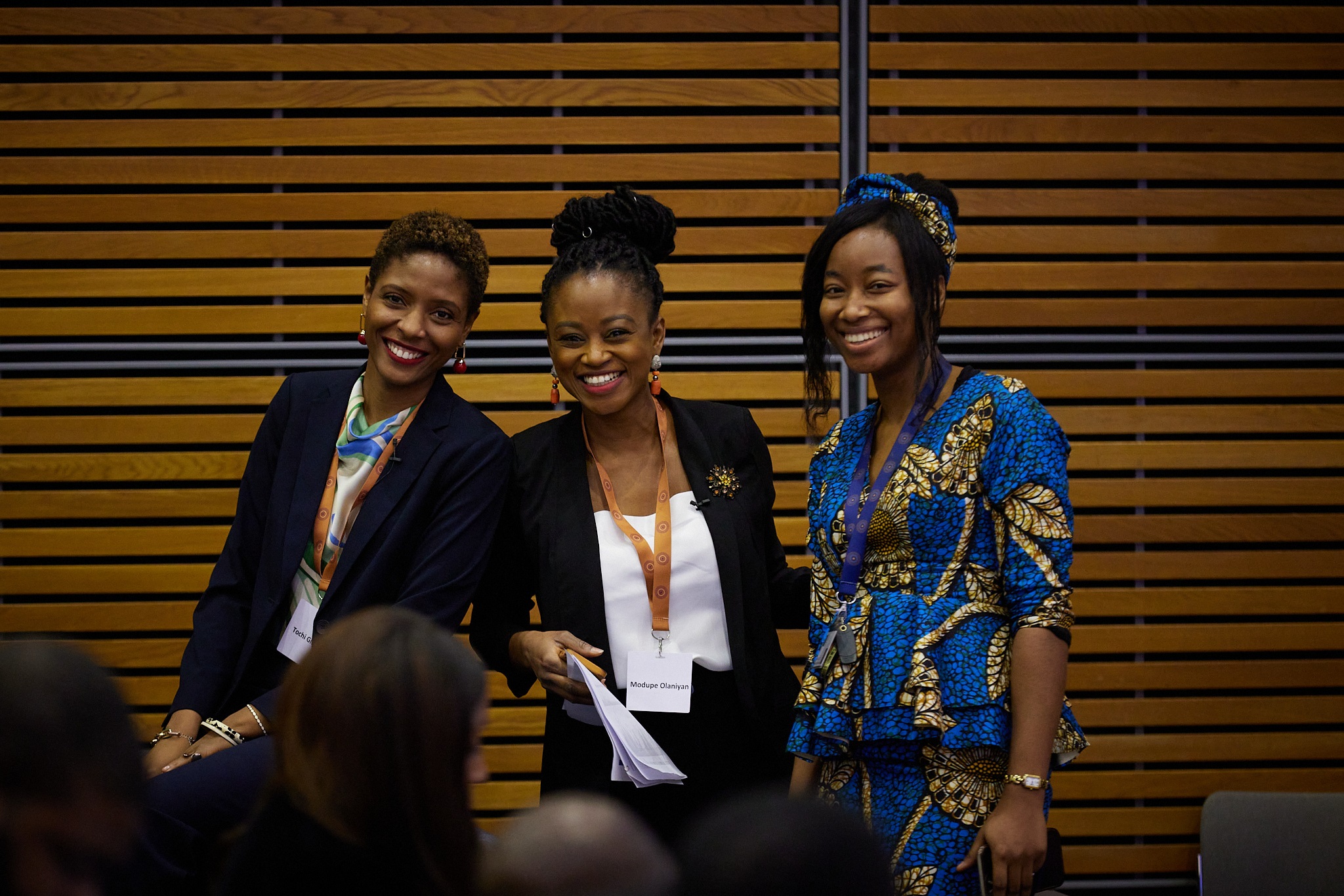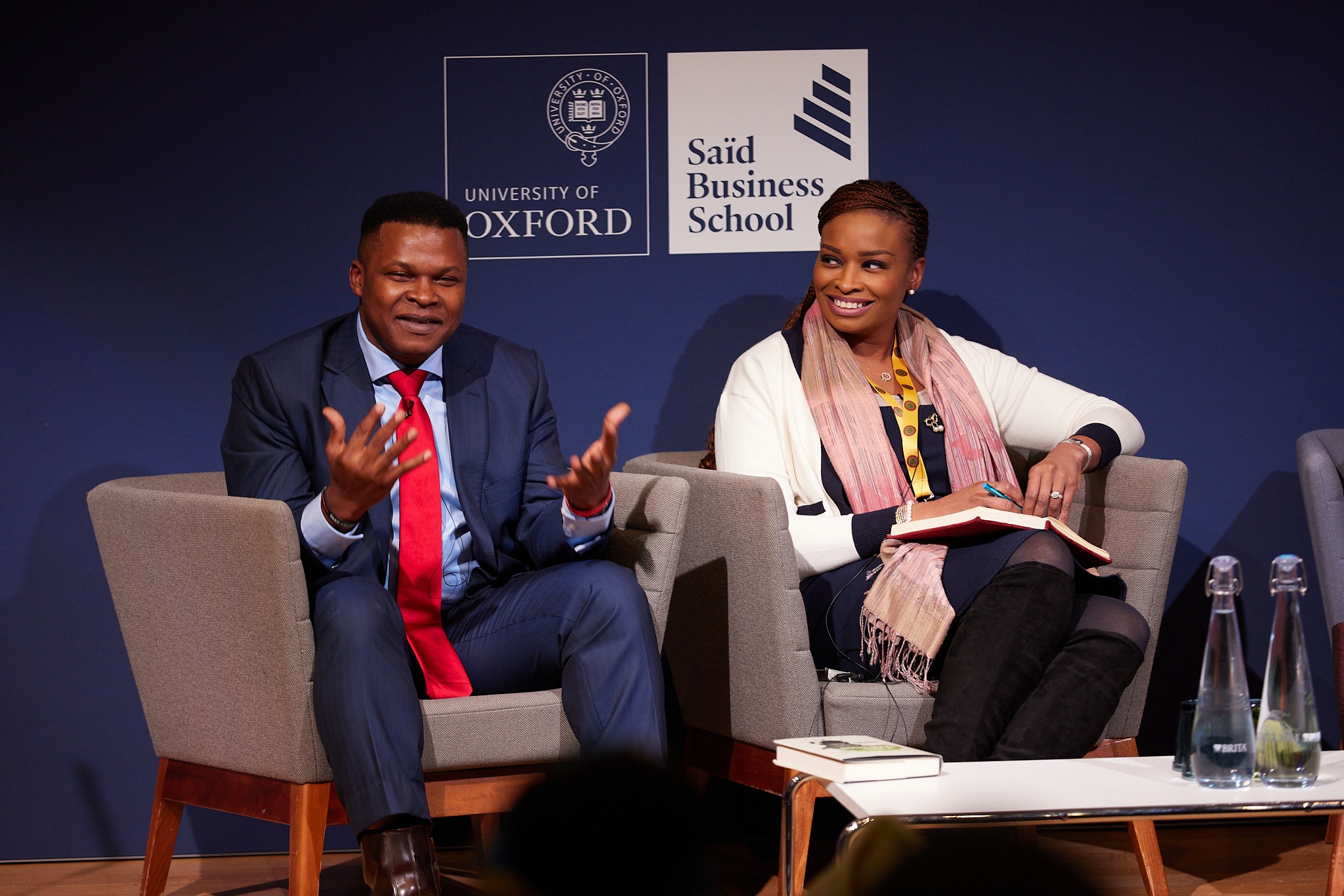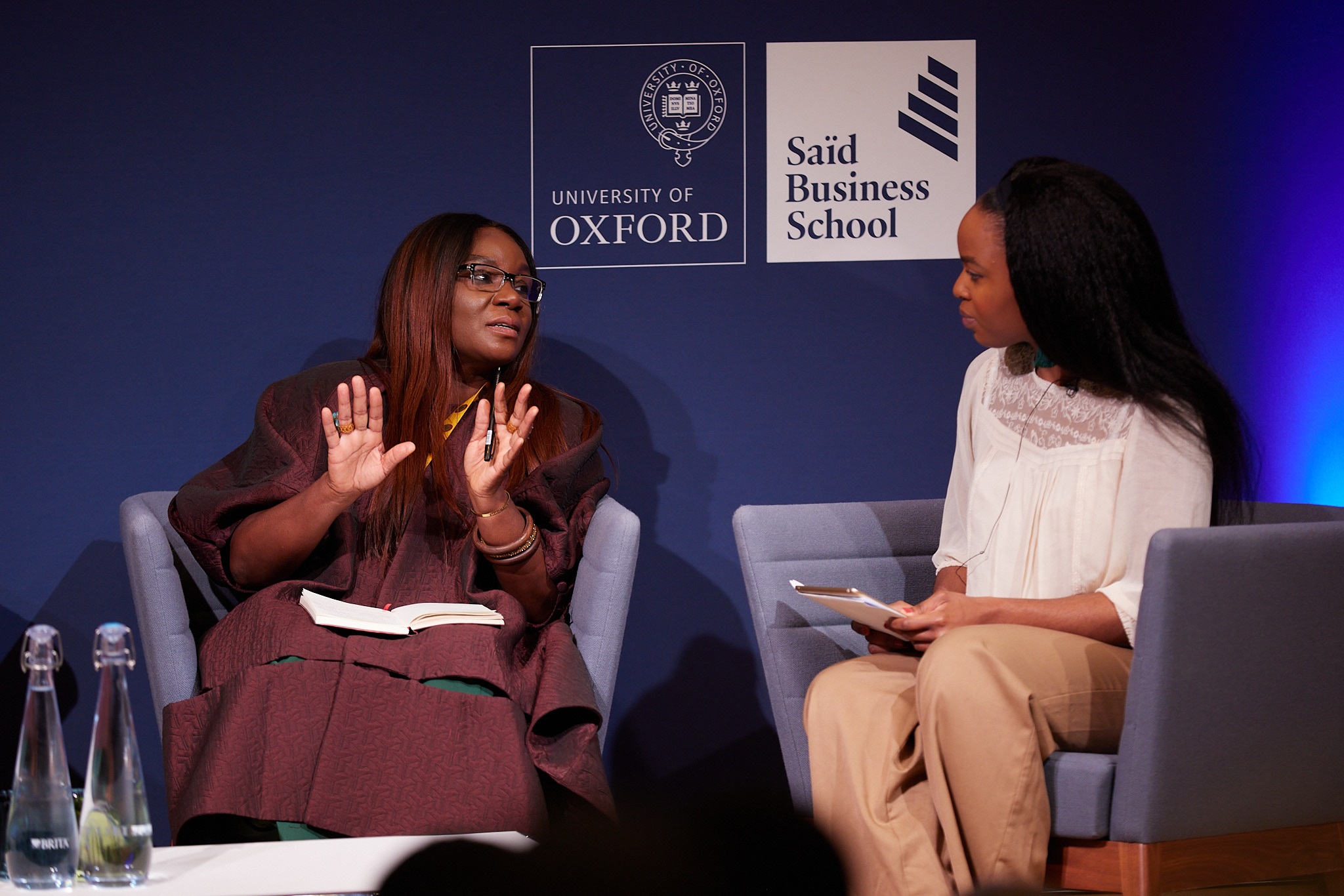Development and environmental challenges must be addressed in tandem.
Education, governance, and leadership: these three themes emerged repeatedly during the Oxford Africa Business Forum 2023, when distinguished speakers from the private and public sectors across the continent discussed how Africa can forge a ‘sustainable path to prosperity’.
The hybrid event, held at Saïd Business School and online on 10 March 2023, emphasised the complexity of the task facing the continent, which is several industrial revolutions behind Europe and North America yet tied to the same global net zero targets. Many industries and regions are dependent on fossil fuels, while ‘greening’ developing African economies is likely to entail job losses and reinforce inequality. Meeting the expectations of future generations will require trade-offs and a long-term vision on the part of governments to encourage business growth and create sustainable, resilient economies.
‘The role of government is to change the mindset and create the innovative processes to provide the building blocks to create an ecosystem that allows a thriving private sector,’ said H.E. Professor Muhammadou M.O. Kah, Ambassador of The Republic of the Gambia to the Swiss Confederation and Permanent Representative to the UN Office. He argued that corruption and a long-term government leadership mandates, short-term mindset in technical government leadership and in the private sector, where ex-pat senior executives are regularly rotated) are discouraging to investment: leaders need to enforce ‘100% no-tolerance of corruption’ and a long-term plan ‘that will transcend politicians’ and that will place ‘people and wellbeing’ at the centre.





